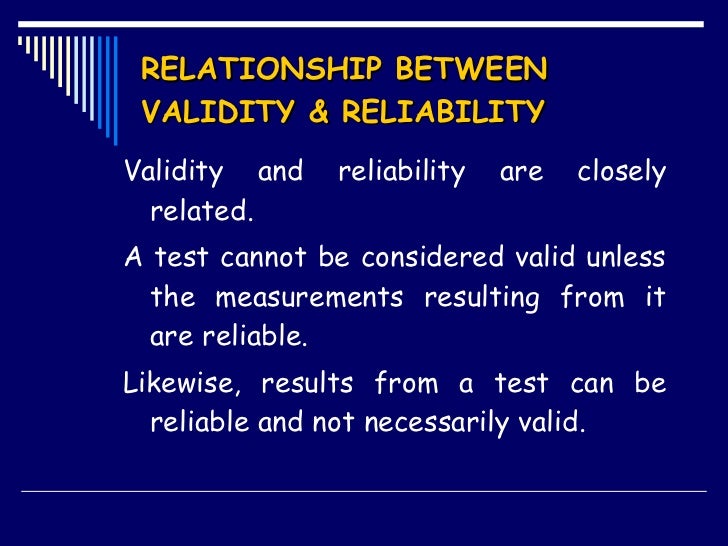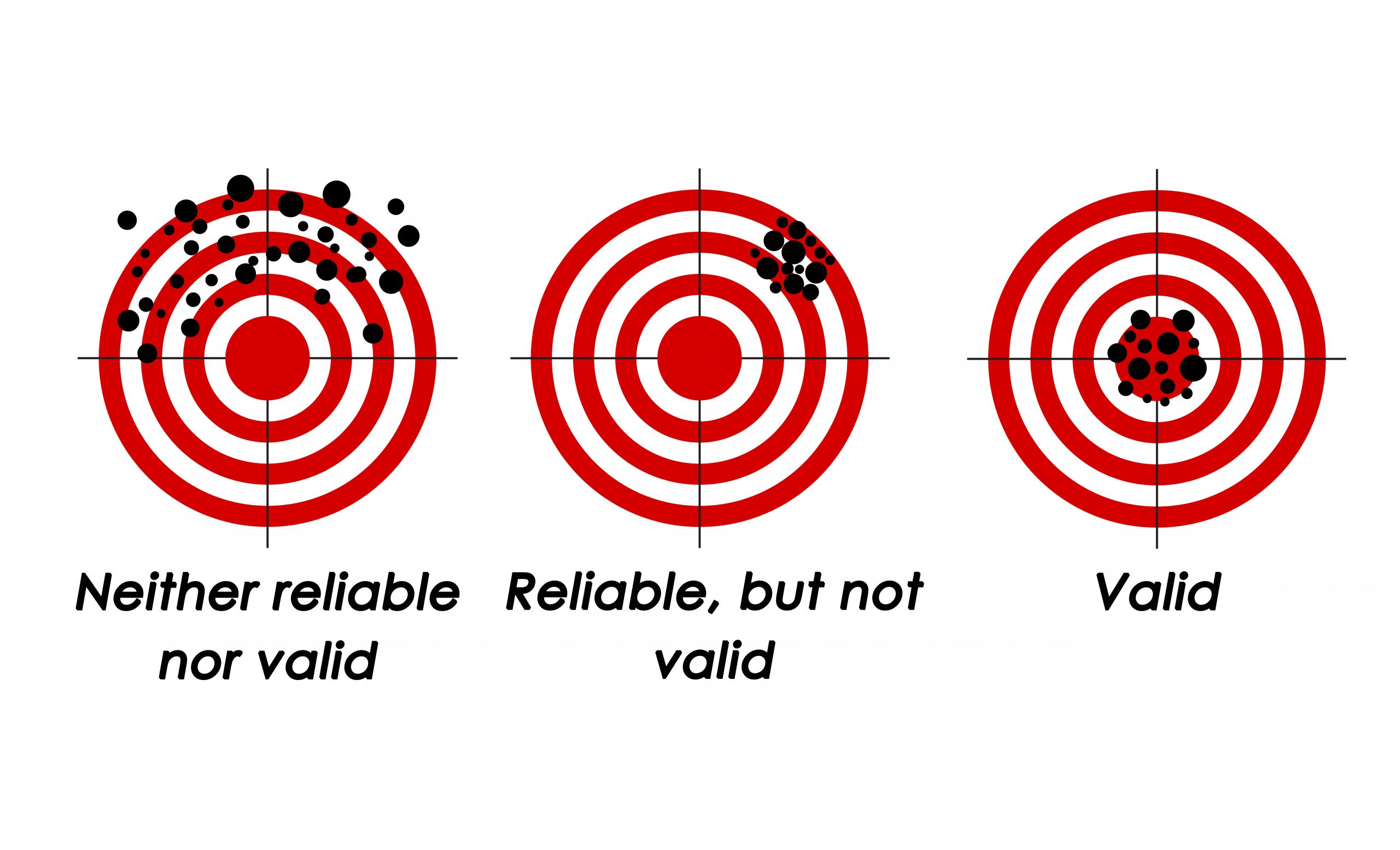

Divergent Validity: Whether scores on an assessment correlates negatively / not at all with another assessment designed to measure an unrelated construct.Convergent Validity: Whether scores on an assessment correlate positively with another similar assessment designed to measure that same construct.

Content Validity: Whether an assessment measures all aspects of a particular psychological construct.Face Validity: Whether or not an assessment appears to measure the intended psychological construct.There are various forms of validity, which include: Although validity requires reliability, as unreliable tests cannot measure anything at all, reliability does not guarantee validity. Validity relates to whether or not a psychometric assessment measures its intended psychological construct. This suggests that each question individually is measuring the same psychological construct, suggesting that the assessment is reliable. Conversely, low scores on each specific item should correlate negatively with the score overall. With internally consistent tests, high scores on each specific item should correlate with a higher score on the assessment overall. Internal consistency relates to the relationships between the individual items in the test and the overall score. If the tests scores are broadly similar (not necessarily identical), then the test can be said to be reliable. If the scores differ significantly between attempts, the test lacks reliability. Test-retest reliability involves giving the assessment to a group of participants two or more times, and evaluating the differences between each attempt. Reliability:įrom a classical test theory perspective, there are two primary forms of reliability: Test-retest reliability, and internal consistency. However, more investigation is required to determine if the scores themselves are meaningful, and measure the psychological construct it purports to measure. For example, if a student completes a psychometric assessment 10 times, and gets the exact same score each time, the assessment can be said to show “reliability”. As a result, reliability is required for validity, but not necessarily the other way around.

Validity however, answers the question “does this assessment actually measure the construct it claims to?”. Put simply, reliability relates to the precision, accuracy, and replicability of psychometric test scores. In the context of psychometric testing, reliability and validity are related, but are ultimately separate constructs.


 0 kommentar(er)
0 kommentar(er)
